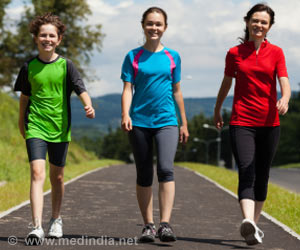Wearable fitness tracker is superlative at counting the number of steps the wearer takes in a day and it is far from accurate on measuring the quality of sleep.

‘Activity trackers are good at keeping tabs of your number of steps, but it may or may not be good at rating how far you've traveled, and aren't so good at analyzing sleep or calorie usage.’





The UNC team, led by Dr Kelly Evenson, studied two brands of wearable devices and found that both trackers under-estimated calories used and over-estimated total sleep time. The researchers conducted a systematic review of 22 published articles researching the ability of Fitbit and Jawbone -- two popular activity trackers -- to measure steps, distance, physical activity, calories and sleep.Several studies indicated that the step counting feature was accurate both in the lab and in the field. Only one study assessed distance tracking for the Fitbit, finding that the device tends to over-estimate at slower speeds and under-estimate at faster speeds.
Incidentally, another paper published in Wiley journal a few days back underlined the need to develop better metholodies to study wearable devices. It noted that the traditional randomized trial designs used in health and medicine are not well suited to mobile health, and perhaps the "micro-randomized trial" can be a useful alternative.
"When researching information on the trackers, we learned several tips users may be able to implement to make their tracker more accurate," study lead author Kelly Evenson, professor at University of North Carolina Gillings School of Global Public Health in the US, pointed out.
The findings appeared in the International Journal of Behavioral Nutrition and Physical Activity.
Advertisement















